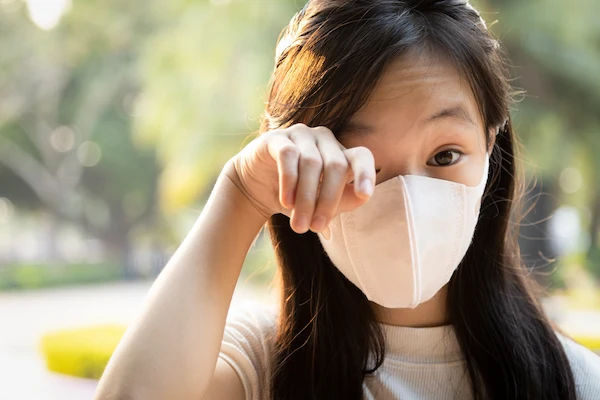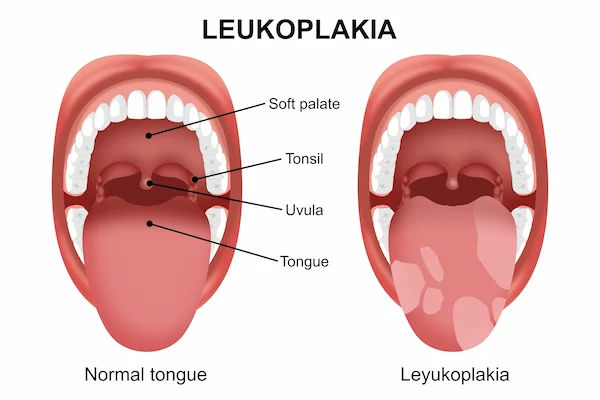Blood Tests for Diagnosing Skin Diseases
Discover how blood tests can aid in diagnosing various skin diseases, from autoimmune conditions to infections. Learn about common blood markers and what they indicate.


Blood Tests for Diagnosing Skin Diseases
Introduction
Skin diseases can be uncomfortable, frustrating, and sometimes even painful. While many skin conditions are diagnosed through visual examination, some require further testing—including blood tests—to confirm the diagnosis or rule out other underlying conditions.
If you’ve been struggling with persistent rashes, unexplained itching, or unusual skin changes, your doctor may recommend blood tests to get a clearer picture of what’s happening. In this article, we’ll explore how blood tests help diagnose skin diseases, what conditions they can detect, and how you can prepare for them.
Why Are Blood Tests Needed for Skin Diseases?
Not all skin conditions require blood tests, but in certain cases, they provide crucial information that a physical exam alone cannot. Blood tests help:
- Identify infections (bacterial, viral, or fungal) affecting the skin.
- Detect autoimmune disorders (like lupus or psoriasis) where the immune system attacks healthy skin cells.
- Check for allergies causing skin reactions.
- Measure levels of vitamins, hormones, or minerals that may contribute to skin problems.
- Monitor the effectiveness of ongoing treatments.
Common Skin Diseases Diagnosed with Blood Tests
Common skin diseases diagnosed with blood tests:
1. Autoimmune Skin Disorders
Autoimmune diseases occur when the immune system mistakenly attacks the body’s own tissues, including the skin. Blood tests help detect specific antibodies linked to these conditions.
Lupus (Systemic Lupus Erythematosus - SLE):
- Tests: ANA (Antinuclear Antibody), Anti-dsDNA, Anti-Sm antibodies.
- Symptoms: Butterfly-shaped rash on the face, joint pain, fatigue.
Psoriasis:
- Tests: CRP (C-reactive protein), ESR (Erythrocyte Sedimentation Rate).
- Symptoms: Thick, scaly patches, redness, itching.
Dermatomyositis:
- Tests: CK (Creatine Kinase), ANA, Anti-Jo-1 antibodies.
- Symptoms: Purple-red rash on eyelids, muscle weakness.
2. Allergic Skin Conditions
Allergies can trigger skin reactions like hives, eczema, or contact dermatitis. Blood tests help identify allergens causing these reactions.
Allergy Testing (IgE Test):
- Measures antibodies reacting to allergens (pollen, pet dander, foods).
- Helps in conditions like eczema (atopic dermatitis) and chronic hives (urticaria).
Get Your Symptoms Assessed
3. Infections Affecting the Skin
Certain infections lead to skin rashes or lesions, and blood tests help confirm the cause.
HIV/AIDS:
- Tests: ELISA, Western Blot.
- Symptoms: Skin rashes, sores, frequent infections.
Lyme Disease:
- Tests: ELISA, Western Blot (for Borrelia antibodies).
- Symptoms: Bullseye rash, fever, joint pain.
Syphilis:
- Tests: VDRL, RPR, FTA-ABS.
- Symptoms: Painless sores, rashes on palms/soles.
4. Nutritional Deficiencies & Hormonal Imbalances
Sometimes, skin problems arise due to deficiencies or hormonal changes.
Vitamin D Deficiency:
- Symptoms: Dry skin, slow wound healing.
- Test: 25-hydroxy Vitamin D test.
Thyroid Disorders (Hypothyroidism/Hyperthyroidism):
- Tests: TSH, T3, T4.
- Symptoms: Dry, flaky skin (hypothyroidism) or sweaty, thin skin (hyperthyroidism).
Consult Top Physician For More Health Benefits
How to Prepare for a Blood Test?
Blood tests are simple and usually require minimal preparation:
- Fasting: Some tests (like glucose or cholesterol) require fasting for 8-12 hours.
- Hydration: Drink water unless instructed otherwise.
- Medications: Inform your doctor about any medications you’re taking.
- Comfortable Clothing: Wear loose sleeves for easy access to veins.
What Happens After the Test?
Things that happen after the test are:
- Results usually take a few days.
- Your doctor will interpret them and discuss treatment options if needed.
- Further tests (like skin biopsies) may be recommended in some cases.
Tips for Managing Skin Conditions
While blood tests help diagnose the problem, managing skin diseases often requires lifestyle changes:
- Moisturize Regularly – Dry skin worsens conditions like eczema.
- Avoid Triggers – Identify and stay away from allergens or irritants.
- Eat a Balanced Diet – Omega-3s (fish, flaxseeds) and antioxidants (fruits, veggies) support skin health.
- Stay Hydrated – Water helps maintain skin elasticity.
- Use Sun Protection – UV rays can aggravate many skin conditions.
When to See a Doctor?
Consult a dermatologist if you notice:
- Persistent rashes or itching
- Unexplained sores or blisters
- Sudden skin discoloration
- Worsening symptoms despite home care
If you need a blood test or expert advice, you can book a consultation or lab test through Apollo 24|7 for quick and reliable results.
Final Thoughts
Skin diseases can be complex, but blood tests provide valuable insights into their causes. Early diagnosis leads to better treatment outcomes, so don’t hesitate to seek medical advice if you notice unusual skin changes. With the right care, most skin conditions can be managed effectively.
Consult Top Physician
Consult Top Physician

Dr. Sandhya Chandel
General Physician/ Internal Medicine Specialist
16 Years • MBBS, MD (Int. Med.), IDCCM
Bilaspur
Apollo Hospitals Seepat Road, Bilaspur
(125+ Patients)

Dr. Mohamed Azeem
General Physician/ Internal Medicine Specialist
2 Years • MBBS,MD(Internal Medicine) CCEBDM
Karaikudi
Apollo Hospitals Karaikudi, Karaikudi

Dr. Anand Ravi
General Physician
2 Years • MBBS
Bengaluru
PRESTIGE SHANTHINIKETAN - SOCIETY CLINIC, Bengaluru

Dr Aakash Andgi
General Physician/ Internal Medicine Specialist
9 Years • MBBS MD
Bengaluru
Apollo Clinic, JP nagar, Bengaluru

Dr Syed Mateen Pasha
General Physician
2 Years • MBBS
Bengaluru
PRESTIGE SHANTHINIKETAN - SOCIETY CLINIC, Bengaluru
Consult Top Physician For More Health Benefits

Dr. Sandhya Chandel
General Physician/ Internal Medicine Specialist
16 Years • MBBS, MD (Int. Med.), IDCCM
Bilaspur
Apollo Hospitals Seepat Road, Bilaspur
(125+ Patients)

Dr. Mohamed Azeem
General Physician/ Internal Medicine Specialist
2 Years • MBBS,MD(Internal Medicine) CCEBDM
Karaikudi
Apollo Hospitals Karaikudi, Karaikudi

Dr. Anand Ravi
General Physician
2 Years • MBBS
Bengaluru
PRESTIGE SHANTHINIKETAN - SOCIETY CLINIC, Bengaluru

Dr Aakash Andgi
General Physician/ Internal Medicine Specialist
9 Years • MBBS MD
Bengaluru
Apollo Clinic, JP nagar, Bengaluru

Dr Syed Mateen Pasha
General Physician
2 Years • MBBS
Bengaluru
PRESTIGE SHANTHINIKETAN - SOCIETY CLINIC, Bengaluru






